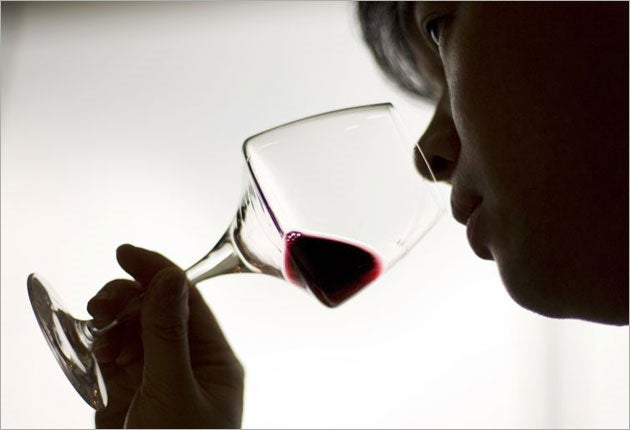Here's to the wine that clears your arteries
Australian doctor ups the antioxidants for a tipple that's good for blood vessels

It sounds too good to be true, but an Australian doctor insists he has created the world's healthiest tipple: a wine that cleans the arteries as you drink it, reducing the risk of heart attack.
Philip Norrie, who owns a vineyard in New South Wales, is producing wines with up to 100 times the antioxidant content of a standard drop. He calls them "vascular pipe-cleaners", saying the antioxidant they contain – resveratrol, which occurs naturally in grapes – helps to keep blood vessels free of fatty deposits.
Dr Norrie said yesterday that while the positive effects of moderate wine consumption had long been documented, "the inclusion of such large quantities of this beneficial antioxidant is very good news for wine drinkers". He added: "What we've been able to do is boost the amount of resveratrol in wine – and you won't even know it's there. You're effectively clearing your arteries while you drink."
The GP, who works in Sydney's northern beaches area, points to Australia's long tradition of wine-making doctors, with some of its best-known vineyards – including Penfolds and Lindemans – founded by medical practitioners who accompanied the convict ships to Britain's new penal colony. Wine, claims Dr Norrie, is man's oldest medicine.
As for resveratrol, it helps maintain blood flow by keeping the arteries free of the fatty deposits known as atherosclerotic plaque. Since it is an odourless and tasteless substance, the flavour and bouquet of wines are not affected. And lovers of semillon and sauvignon blanc will be pleased to learn that whites have the antioxidant, too, although in smaller quantities than red wine.
At his boutique 50-acre estate in the Lower Hunter Valley, north of Sydney, Dr Norrie is producing a shiraz and a chardonnay with 100mg per litre of resveratrol. That, he says, is 70 to 100 times the amount found in an ordinary bottle of white, or 15 to 20 times the amount in a bottle of red.
But Dr Norrie, a wine historian with a PhD in "wine and health through the ages" and who produces his healthy tipples under a label called Wine Doctor, warns drinkers: "I stress that these benefits are best realised with moderate drinking," he said yesterday.
Dr Norrie likes to quote Paracelsus, the 16th-century Swiss physician regarded as the father of modern pharmacology, who declared: "Whether wine is a nourishment, medicine or poison, is a matter of dosage." He also quotes the 18th-century American scientist Benjamin Franklin: "Wine is constant proof that God loves to see us happy."
The positive effects of resveratrol were confirmed yesterday by David Colquhoun, a senior cardiologist at the University of Queensland. He said studies "strongly suggested" that drinking wine rich in the antioxidant could lessen the risk of heart attack, stroke and cardiovascular disease. Resveratrol is also said to lower blood sugar and ward off cancers, as well as having anti-inflammatory effects.
Join our commenting forum
Join thought-provoking conversations, follow other Independent readers and see their replies
Comments
Bookmark popover
Removed from bookmarks